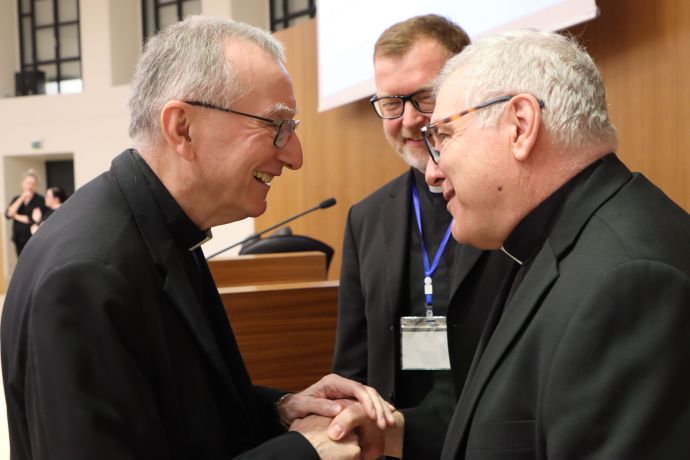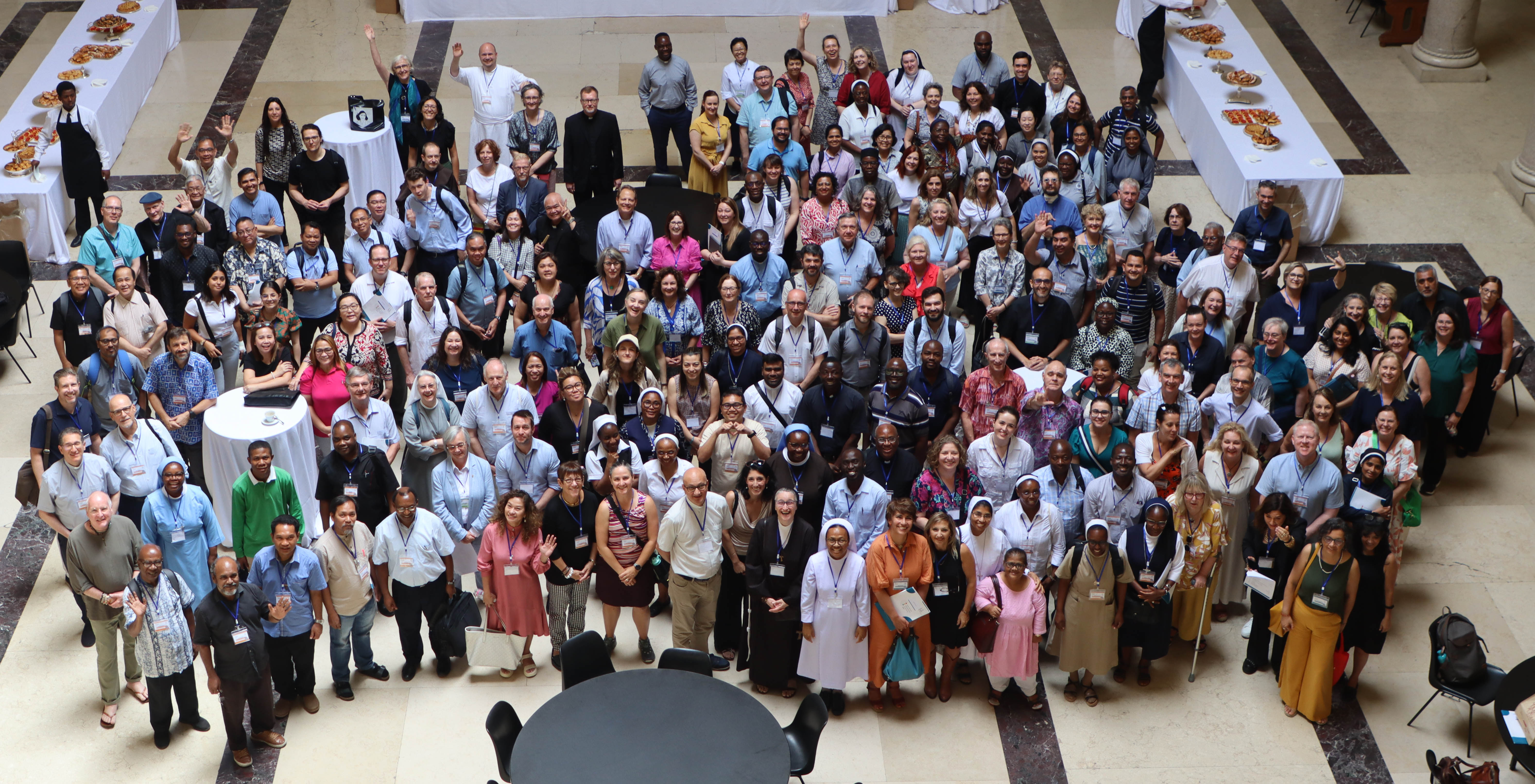
Gregorian and IADC host the 2024 International Safeguarding Conference “Safeguarding and Disability”
IADC Director, Fr. Hans Zollner, SJ, opened the 2024 International Safeguarding on the topic “Safeguarding and Disability, stating, “It is our hope that these exchanges will foster a deeper understanding of the complex challenges we face and inspire innovative approaches to safeguarding as it has been the case in the last editions of the ISC.” The conference brought together 234 delegates in Rome plus online participants, including state representatives, professionals in the field of safeguarding, representatives of the Deaf Catholic Youth Initiative for the Americas (DCYIA), a non-profit organization that supports the pastoral, cultural, and linguistic needs of deaf youth in the Americas.
Cardinal Pietro Parolin, Vatican Secretary of State, Fr. Mark Lewis, SJ, Rector of the Pontifical Gregorian University, and Prof. Sheila the Baroness Hollins, Member of the House of Lords of the United Kingdom and Emeritus Professor of Psychiatry of Learning Disability at St George's, University of London addressed attendees on the first day’s panel, all remarking on the urgency to include, protect, and listen to disabled people who make up 1/5 of the world population and church. Cardinal Parolin cited the Holy Father, saying that “We need to stop talking about ‘them’ and start talking about ‘us,’” asserting that “in a just society, people with disabilities must not be pushed to the margins, [nor be rendered] materially or spiritually impoverished, but integrated and recognized as any other portion of the human family and of the Church’s life.”
Fr. Mark Lewis recognized the need to “find more effective ways of [abuse] prevention,” and welcomed all those who work in the field or have suffered the effects of abuse, stating: “I welcome you all in a particular way, as practitioners of abuse protection. You work on the front lines, interacting with and assisting those who have suffered abuse. I also wish to acknowledge those who have been victims of abuse. We will continue to work and to pray for healing, as well as commit ourselves to find more effective ways of prevention.”

Other keynote speakers spoke candidly about their own experiences living with a disability and being part of a social minority, such as the Deaf community, noting the marginalization they encounter in various environments, including in the Church. There was an overall resounding call for the visibility of people with disabilities. Recognizing that 30% of all abused children probably have neurodevelopmental disabilities, according to Baroness Hollins, 1/3 – 1/2 of all disabled children are abused, and of the 8 million youth that live in orphanages worldwide, most are disabled – not orphaned – attendees and online listeners were called to take action about these staggering statistics.
A Declaration was published on the International Safeguarding Conference’s website, stating: “Significant questions were raised about how far the Church attends to the healing that is needed by those who are invisible. As a Church, we should strive to end the “othering” of those persons with visible and hidden disabilities, as we should also strive to do so for all victims of all kinds of abuse. Together, we commit to promoting a sense of belonging for all within the Church.”
Finally, next year’s ISC topic will be “Women of Faith, Women of Strength: A Safeguarding Conference,” and it will be held in Rome at the Pontifical Gregorian University June 17-20, 2025.
For more information on next year’s ISC and to view lectures from past conferences, please visit thesafeguardingconference.org.

